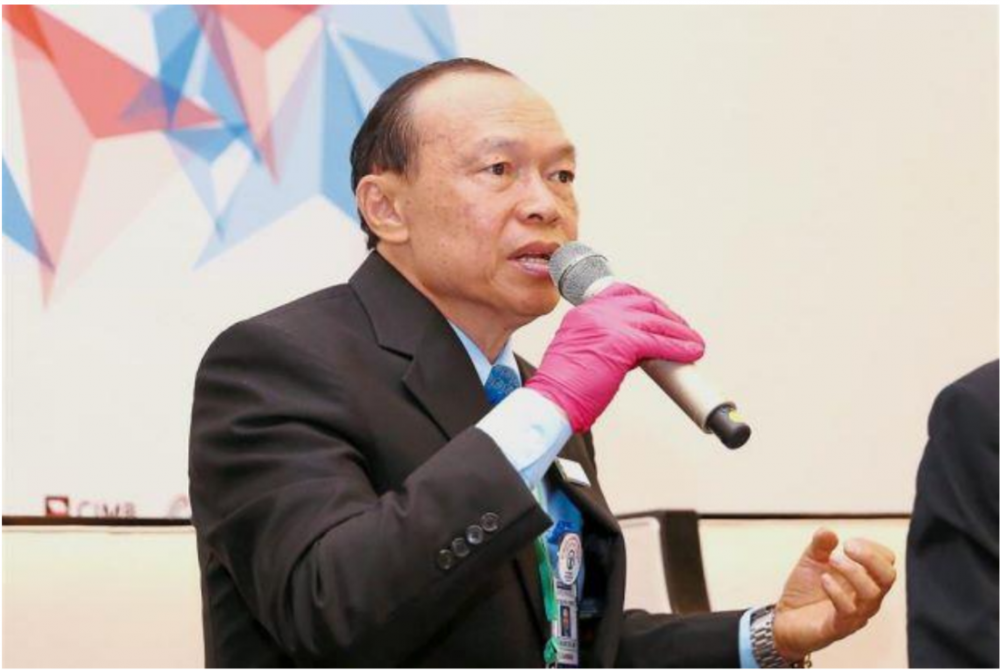AYE TO 30% WOMEN AGENDA
18 November 2017 / 12:11

PLCs which have no woman director by next year will be shamed
THE message is clear: Act fast.
And major public listed companies (PLCs) have duly sat up and taken notice of the government’s agenda to achieve the target of at least 30% women on their boards of directors by 2020, after the Prime Minister’s announcement in July to step it up.
Groups that represent investors and PLCs have reacted positively to Prime Minister Datuk Seri Najib Tun Razak’s call.
In July, Najib announced that PLCs which failed to have any woman on their boards by 2018 would be “named and shamed” next year.
The Government wants to make a strong statement in moving this agenda forward. Malaysia is behind target in this initiative, now widely adopted by the United Kingdom, New Zealand and Australia.

As at Sept 30 this year, the total women placement on boards of the Top 100 PLCs by market capitalisation was 19.1%. However there were still 14 companies among the top 100 PLCs without a single female director.
Since 2011, Najib’s administration has taken an interest in the gender profile of top management.
In fact, growing numbers of research proves that diversity of views and experience create better decision-making.
PNB says: “We laud the PM’s call for gender diversity on boards and PNB is committed to promoting this agenda in its group of companies.”
PLCs under PNB to toe the line
“PNB has a stake in over 100 listed firms and is supportive of efforts to meet the Malaysian Code of Corporate Governance 2017’s requirement of 30% female board members,” it adds in an email interview.
The state-owned investment fund notes that five out of seven major listed companies controlled by the group have more than 30% women representation on their boards, while the other two have at least 20% women directors.
PNB has also appointed two women chairmen: Datuk Mohaiyani Shamsudin
(Malayan Banking Bhd image: https://cdn.thestar.com.my/Themes/img/chart.png )
and Normala Abdul Samad (CCM Bhd).
Softer outlook: Cheah says female directors take a softer approach to resolving conflicts.
The Code, best practice in nature, was launched by the Securities Commission (SC) in April. All listed firms must also declare in their annual report their gender representation on their board and in senior management.
Other than the 30% agenda, the Code also encourages large companies to spell out reasons why they are not able to appoint women to their boards.
In tandem with the SC’s action, Bursa Malaysia requires all listed companies to disclose in their annual reports their diversity policies, covering gender, ethnicity and age.
FMM hopes to achieve 30% sooner
FMM, one of the most influential trade groups, “sees the need” to have women on boards as many studies have shown that PLCs with gender diversity performed better.
“We support the target and deadline of having 30% women on boards. FMM encourages companies to have women representation as soon as possible,” president Tan Sri Lim Wee Chai says.
Lim, who is also the chairman of Top Glove Corp Bhd image: https://cdn.thestar.com.my/Themes/img/chart.png
adds: “We believe female directors can add value to the boards with their experience. For Top Glove, we are always on the lookout for good potential candidates.”
Top Glove – the world’s largest rubber glove company – currently has four women directors on its 12- member board, bringing its quota to 33%.
Sharing his experience of working with women directors, Lim says: “Women’s strengths lie in managing risk; they are able to address the concerns of different stakeholders. Women are more perceptive of customer needs and good at product development.”
Lynn Cheah, former chief executive officer of Eastspring Investments, shares her vast experience: “Female directors offer fresh perspectives from corporate, business and corporate social responsibility standpoints.
They focus on the feasibility of projects and are more detail-oriented. They also take a softer approach to resolving conflicts.
“Male directors usually tend to toe the line, adhering to the wishes of major shareholders who may not be right sometimes.”
She opines that the agenda to have PLCs to have 30% female directors should be made mandatory.
Target achievable?
A key initiative in this agenda is the setting up of the 30% Club, a business-led initiative. Club members conduct awareness programmes via round-table discussions with the chairmen and board members of PLCs. It also conducts a director mentorship programme.
The government sector, however, has surpassed its 30% target. Women now make up 35.4% of highranking officers in federal government departments and agencies.
Hence, with intense government efforts, support from the major state investment funds, business leaders and trade groups, the future looks bright for women on boards.







.jpg)

.png)
.png)
.png)

.png)
.png)






